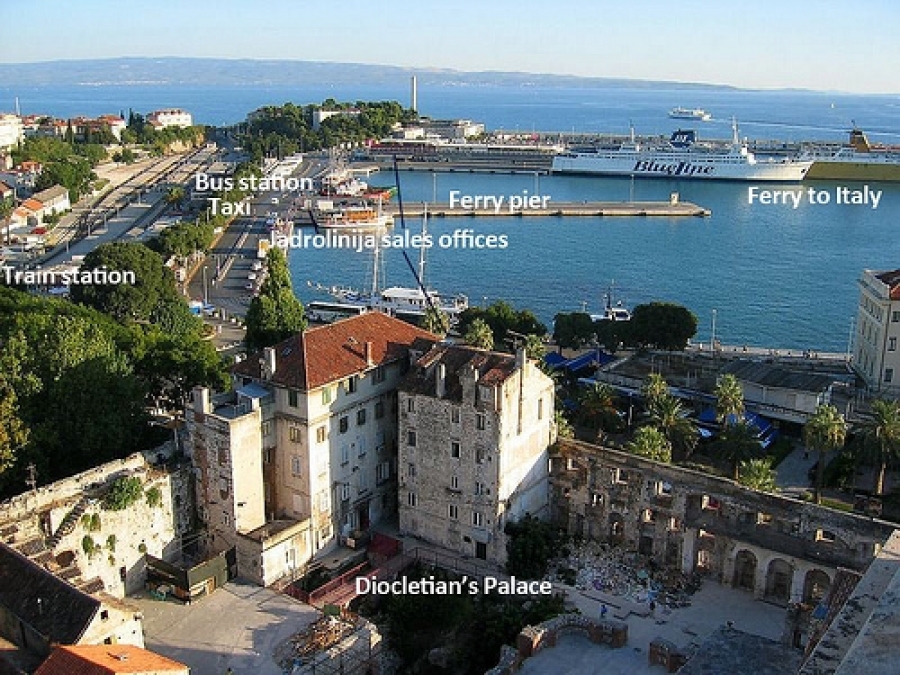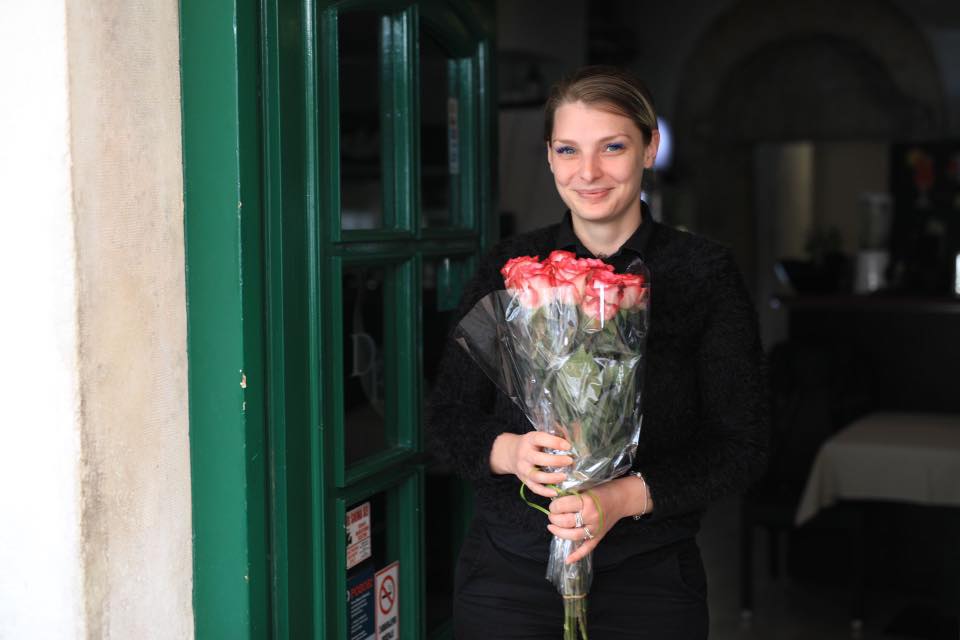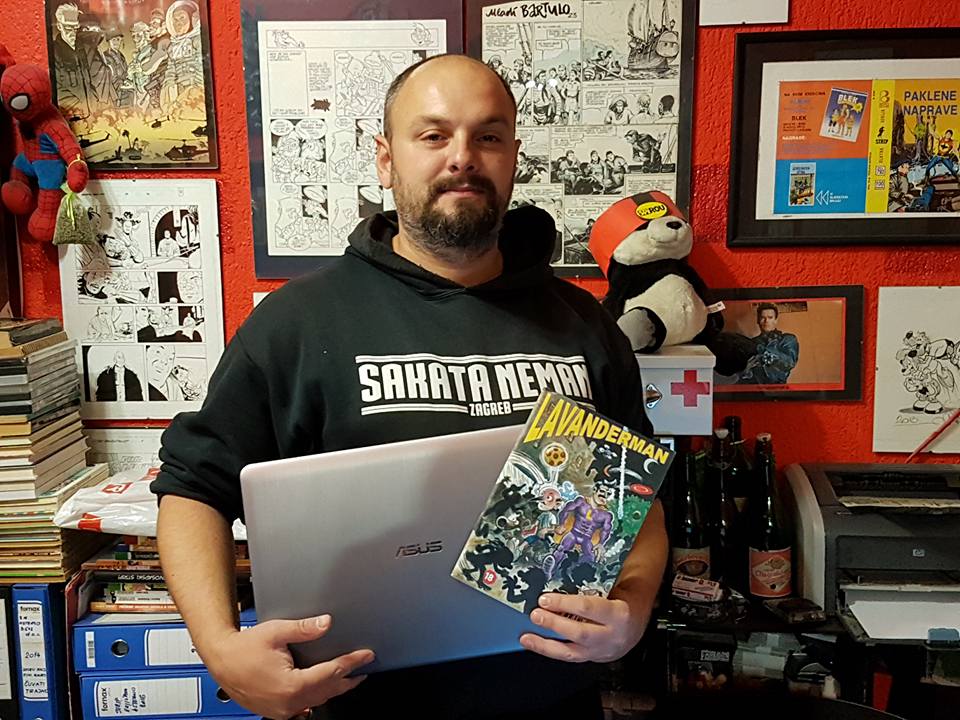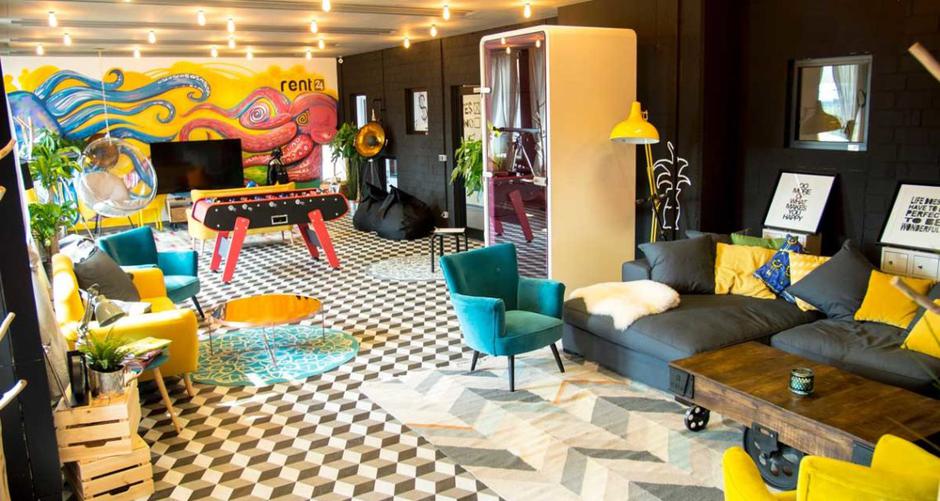Croatians Prefer Non-carbonated to Carbonated Water, Survey Shows
ZAGREB, 20 June, 2021 - As many as 89.1% of Croatians prefer tap water, 76.7% think that bottled water is not better or healthier than tap water, and 59.9% choose non-carbonated water when shopping, a survey showed.
The survey was carried out by Ja Trgovac magazine and the Hendal market research agency in May on a representative sample of Croatian citizens above the age of 16.
It showed that 44.8% of respondents drink more than five glasses of water on average a day, 37% drink three to four glasses, 12.1% drink two to three glasses and 6.1% drink at least one glass of water a day.
As many as 89.1% prefer tap water and 10.9% more often buy bottled water, either carbonated or non-carbonated, 11.1% drink bottled water every day, 17.7% do so several times a week and 14.3% once a week, 22.3% drink bottled water several times a month, 19% do so several times a year and 15.6% never buy or drink bottled water.
As for the type of bottled water, 59.9% of respondents mostly buy or drink non-carbonated water, 36.3% prefer non-carbonated water and 3.7% like flavoured water.
Asked whether they think that bottled water is healthier or better than tap water, 76.7% of respondents said that it is not better, while 23.3% think that it is.
For more on lifestyle in Croatia, follow TCN's dedicated page.
For more about Croatia, CLICK HERE.
41% of Croatians Aged 25-29 Live with Parents
ZAGREB, December 19, 2019 - Although young people in Croatia find their first job relatively early, 41% of those aged 25-29 do not leave the security of their parents' home, while as many as 7% of those older than 45 still live with their parents, a survey conducted by the MojPosao job-seeking website shows.
The survey, conducted on a sample of 3,500 people, reveals that nearly half of young people (up to 30 years old) find their first job while in secondary school, a third do so during their university years, while the rest are yet to find work.
It also shows that 83% of the respondents get their first full-time job before turning 26, and as many as 56% are still in school at the time.
Six percent said their first monthly salary was between HRK 6,000 (€810) and 8,000 (€1,080), while 2% said they earned more than HRK 8,000. More than a half said that during their first full-time job they got between HRK 2,000 (€270) and 4,000 (€540), while a third earned between HRK 4,000 and 6,000 (€810).
Sixty-six percent said that in the course of their career they had worked in between two and five jobs, while a quarter of those interviewed said their current job was their first. Eight percent have changed between 6 and 10 different jobs, and 2% have changed more than 10.
One in three adults live with their parents in their parents' home, 8% live without their parents, a fifth live in rented accommodation and a third in their own property.
Nearly 70% of those interviewed aged 24 and younger live with their parents, as do 41% of people aged 25-29. A fifth of respondents aged 30-34, 15% of those aged 35-39, 12% of those aged 40-44 and 7% of respondents aged 45 and over live with their parents.
Respondents said they had taken their first mortgage loan when aged 28 on average and were to repay it over a period of 18 years. They got their first car loan when 29 and for a repayment period of nine years.
More lifestyle news can be found in the dedicated section.
Kindness of Strangers and Safety: Croatia's Under-Promoted Tourism Jewels
October 11, 2019 - The land of sun and sea, but also the land of kindness of strangers and safety - Croatia's under-promoted tourism jewels.
One of the things I like about working in the media in Croatia is TCN's position of being local and being foreign - local knowledge with a foreign eye. It means that while we understand how things work in Croatia, we also have an understanding of what foreigners - and in particular - tourists are looking for in terms of information. One simple example of this was soon after we started Total Split.
As a foreigner, I knew how complicated and confusing it was for tourists looking to buy ferry and catamaran tickets, but as a local I knew how easy it was - locals had simply grown up with the system.

A simple guide for tourists ensued (and needs to be updated...), which has proved very popular over the years, with many locals seeing the value of it and placing a link on their accommodation websites.

And so to last week. A tourist from Minnesota posted on his personal Facebook page about the kindness of waitress Ana from Restaurant Riva in Trogir. Having left his wallet at the restaurant the next day, he returned not expecting it still to be there with all the money inside. But that is exactly what he found as Ana returned the wallet to him. She refused a tip and so the tourist bought her flowers instead. A nice story which many locals would take as standard, for this kind of thing happens often in Croatia. And while it also happens in other countries of course, it is sadly increasingly rare in the Western world. Someone tagged me in the original Facebook post, suggesting it would make a great story. I agreed, and 20 minutes later, What Happens If You Leave Your Wallet in a Restaurant in Trogir, Croatia was live. Apart from telling the story, a chance also to put in some images of gorgeous Trogir and a link to a more detailed article on this UNESCO World Heritage Site.
Having learned how the Croatian media works after several years of running TCN, my work did not end there - a link sent to a couple of people with connections with the decision-makers in certain publications, and I sat back and watched the story unfold - Slobodna, Dalmacija Danas, Jutarnji, Index - a nice positive story to lighten the day.

There were plenty of reactions to the story, and two of the main themes got me thinking. The first was the number of locals who didn't think that this was much of a story, for what Ana had done was second nature in Croatian society. And the second response was from the considerable number of people who added their own anecdotes of how they had left things - money, cameras, laptops - only to return and find them where they left them. Something which many concluded would simply not happen these days in their home country.
Every foreigner I know here has a similar story, and I have lost count of the number of times I have left something in a bar, only to return and find it still there. Perhaps my finest hour in this respect was last year after a cold one too many when I realised the next morning in Varazdin that my laptop had fallen out of my backpack somewhere in the streets of Zagreb. While I was contemplating how I would survive the loss of the machine that fed the family, I received a message on Facebook asking if I had lost a laptop in Zagreb. Expecting this to be the start of an intricate blackmailing process for cash, I could not have been more wrong. And two hours later, I was reunited with my laptop, one which had been repaired by the kind stranger who had found it abandoned in a street in central Zagreb. It is one of my favourite stories of my 17 years in Croatia.
The kindness of strangers is something I have become used to over the years in Croatia, as has the safety. Truly, there is no better place in the world to bring up children in those impressionable early years. Starting life on the idyllic island of Hvar, surrounded by nature, community and learning to swim at the age of three, childhood in Croatia is still As It Once Was.
I have had several conversations in recent weeks with returnee Croats, several of whom have returned with family. As a place to bring up family, Croatia was easily the safest option to bring up a family. There was no part of Zagreb I am afraid to walk late at night, said one, and I certainly couldn't say that of Sydney.
And with the digital and remote worker revolution around the corner potentially addressing one of the biggest causes of the crushing emigration in Croatia - jobs - a key aspect to making this happen is to communicate the message that Croatia is a safe place to bring up families, where the kindness of strangers is the norm and not the exception. While locals may realise that Croatia is a kind and safe society, the message needs to be exported.
This theme of how Croatians want tourists to see them and what tourists actually experience came into focus at the recent Croatia 365 conference in Zagreb. Katarina Milicevic from thinktank Think Tourism took the example of gastronomy. Many of the conference participants agreed with her suggestion that gastronomy was Croatian tourism's most important offer after sun and sea. As a scientist, Milicevic went on to present some results of social media analysis of the promotion of Croatian gastronomy in official tourism promotion. In a recent interview with Poslovni, Milicevic explained one of the reasons why Croatia's average tourism spend of 86 euro was a lot lower than some of the neighbours - while Croatia believed that it was a gourmet destination, it was doing a very poor job at projecting that gourmet image, so that arriving tourists were unaware.
According to the Milicevic interview in Poslovni, she analysed the social media of the Croatian National Tourism Board over 12 months, and the results told their own story of how gastronomy was perceived as a pillar of Croatian tourism excellence. Of the 1,100 Instagram posts, just 20 were related to food and wine, of the 440 Facebook posts, just 15 were related to gastronomy. Little wonder that tourists arrive with low gourmet expectations, perhaps.
The good news is that all this is easy to fix. Croatia, the lifestyle destination - for tourism, bringing up young families, remote living - it has so much to offer.
We just need to be a bit better at communicating the message of the treasures we possess. And the currency of the kindness of strangers and safety are increasingly in demand in this crazy world.
Thinking about moving to Croatia? Here is the Total Croatia Living in Croatia guide to give you a little more info.
Average 25-Year-Old in Croatia Has a Job and Lives with Parents
ZAGREB, November 11, 2018 - The average 25-year-old in Croatia has a job in their profession, sleeps five to seven hours, spends more than six hours on their smartphone daily, engages in sports, obtains information online, is politically neutral, and still lives with their parents, but saves money and plans to start a family, have children and buy an apartment, a survey conducted by the Hendal market research agency shows.
Celebrating 25 years of its work this year, Hendal carried out a survey of the lives, habits and opinions of people who were born in 1993 when it began operating.
Currently, 49,000 25-year-olds live in Croatia. The survey, conducted in October on a sample of 172 people, shows that 43% of them still live with their parents and one in three lives with their partner.
Thirty-eight percent said they are completely independent financially and as many said that they are mainly financially independent.
Two thirds (67%) of those interviewed do not have their own house or apartment, but plan on buying one. For that purpose, 38% save money regularly and as many do so periodically.
Most of them plan to get married and have children. Twenty-eight percent said they will certainly get married and 30% said they will most likely do so. As for children, 70% said they plan on having one or more children.
Fifty-seven percent of respondents are gainfully employed, 26% are still in school, and 16% are jobless and looking for work. Every other respondent said they are satisfied to a certain extent with their present job, as would be expected given that 59% said they are working in their profession and 22% said they are not working in their profession because it's their choice.
Asked if they would move to another country for work, 31% said they might, 30% said they probably would and 16% said they certainly would. Fifty percent said they were considering starting their own business.
When it comes to technology, media and social networks, most 25-year-olds obtain information from news websites. Fifty-seven percent read news online every day, while only 10% read newspapers or magazines; 46% watch television and 36% listen to the radio every day.
As expected, Croatian 25-year-olds cannot do without their smartphones; 43% use them more than six hours daily and 27% use them for three to six hours.
Most of respondents, 69%, communicate with their friends via applications and social networks, while only 28% prefer personal contact when communicating with their close friends.
The survey revealed that young people most often spend their leisure time cooking, rather than clubbing or going to the cinema or theatre.
Seventy-seven percent said that they never take soft drugs, 62% never smoke, 36% drink alcohol from time to time and 42% do so only on special occasions. Forty-three percent do sports, mostly jogging, walking, cycling or exercising at home. Sixty-one percent sleep five to seven hours and 29% eight to nine hours.
A mobile phone is definitely the first thing they would take with them to a desert island (48%), 30% would take food and water, 23% said they would bring along their friend or partner, while 20% said they would take a survival kit.
For more lifestyle stories, click here.
Co-Living, New Living Concept, Coming to Croatia
"Co-living" uses all the good sides of “co-working,” and transfers them from work to life, said Robert Bukvić, the founder of the Rent24 company, which is based in Berlin, Germany. Rent24 is the majority owner of HUB385 in Zagreb, which is the best-known co-working space in Croatia, reports Večernji List on November 11, 2018.
"Our members tell us that people want more flexibility in their daily lives, and co-living can offer them that because it creates an environment in which they have a room or an apartment to which they can instantly move, as well as a wide variety of activities to choose from,” he said.
Precisely because of these features, co-living is suitable for anyone who wants to spend some time at a location without having to worry about finding an apartment, furnishing it, and getting to know new people. “Co-living is actually a temporary situation, lasting between one to six months, where people get the best of furniture, cleaning services, various events, gyms and the like. The good thing is that you can move in immediately, without paperwork, stress and other problems,” he said.
“Besides, it is still cheaper than staying at a hotel. However, all these services have a certain value and for that reason, we cannot give a precise figure how much a person could save, but we can say they get a temporary home and become part of the community of people who think like them,” he concluded.

In practice, co-living means giving people opportunities to socialise and spend a lot of time together, although this is not mandatory. “For example, we offer many events and activities in which they can participate, from yoga classes to group cooking. But if someone wants to spend a quiet night in their room, of course, they can do it. The level of involvement in the whole concept is up to them.
Robert explained that the relationships people create during a relaxed evening with beer or dinner give them a new perspective and knowledge they can use in their projects. “Users of co-living facilities share the same mentality: they are open to new ideas and experiences, they love to meet new people and share their experiences with them. What we see is that people get used to this quickly, because they become part of the community.”
Is this the future of living and working? “We are fully convinced that this concept will expand, including internationally. We will open spaces for co-living next to our co-working areas,” Bukvić concluded.
If you want to read more lifestyle stories, click here.
Translated from Večernji List (reported by Nina Cvijanović).
The 3rd Mares Underwater Photo Marathon Cup Shines Light on Krk Island
The southwestern waters of Krk Island were recently the location of the already prestigious underwater photography competition: the 3rd Mares Underwater Photo Marathon Cup
Spring Fashion Floods Zagreb
Thursday evening of April 27 seems to have been destined for fashion events in Zagreb
Explosion of New Vegan, Vegetarian and Gluten Free Flavors
The uniqueness of the 50 A Burger & Champagne Bar is that most meals are also offered in a vegan, vegetarian or gluten-free version, noted in the menu, a complete novelty in Croatia
Dinburger ChaRITy Evening Raises 37 Thousand Kuna for Olive House
The Dinburger ChaRITy Evening took place on April 20 at the Hilton Imperial Hotel in Dubrovnik – a unique gastronomy concept envisioned and organized by students of the 2nd and 3rd year of RIT Croatia
Pink Day Shares Positive Energy among Experts and Tourists
The festival met its own high standards once again and proved itself as an irreplaceable part of table culture promotion and wine enjoyment


